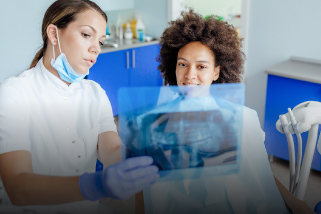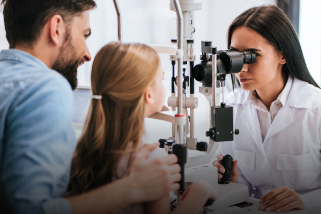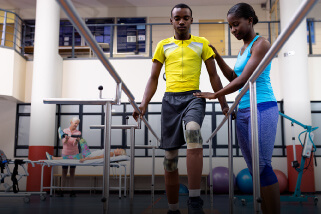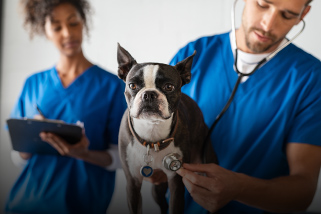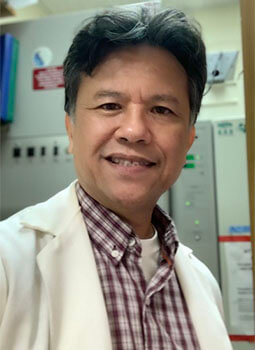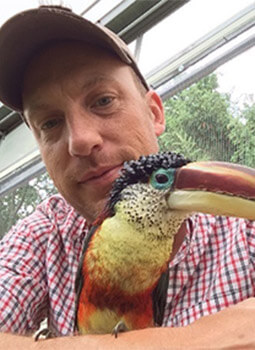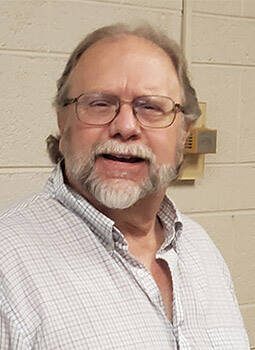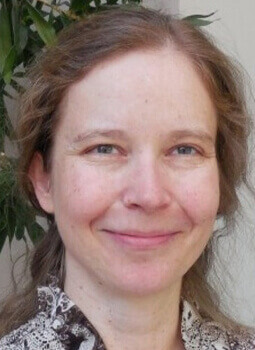Pre-Medicine Certificate
Prepare a competitive Medical School application
The Pre-Medicine Certificate is designed to prepare any student in any discipline, either seeking or having completed a bachelor's degree, for competitively applying to medical/chiropractic/podiatry programs. This certificate requires significant preparation in the natural sciences and a strong GPA to complete. Students are required to seek out volunteer and patient experiences to complete the certificate. The 450 hours (minimum) of required experience places students in a strong position to stand out among their peers.
Format
In-Person
Credit Hours
15 to 16 Credit Hours
*Depending on the student's course selections
Additional Requirements
Science GPA: 3.25
Courses: BIOL 361 x6, BIOL 362 x6, PSYCH 101 and SOC 101
About the Program
The Pre-Medicine Certificate guides students toward meeting important academic and non-academic prerequisites for achieving acceptance into most medical/chiropractic/podiatric programs. The requirements are specifically selected because they are either required or suggested to obtain admission into these programs. Completion of the certificate requirements will increase the chances of students completing a competitive application.
The BIOL 361 and BIOL 362 requirements for Pre-Medicine are a unique aspect of the Pre-Health Certificate program at SXU. BIOL 361 is exclusive to the Pre-Medicine Certificate and requires students to seek out and document volunteer hours of any kind (25 hours per semester for a total of 150 volunteer hours). BIOL 362 requires students to obtain documented experience with patients (e.g., shadowing, scribing, etc.) for 50 hours per semester for a total of 300 experience hours. The result is 450 hours (minimum) of volunteer and patient experience over two years, necessary for a competitive application.
- Students will obtain knowledge in relevant disciplines necessary to perform well on the MCAT and for consideration into medical/chiropractic/podiatric programs.
- Students will obtain knowledge and experiences for consideration into medical/chiropractic/podiatric programs.
- Students will have competitive GPAs for consideration into medical/chiropractic/podiatric programs.
The Pre-Medicine Certificate at Saint Xavier provides a unique opportunity for students to have a guided experience to ensure they submit competitive applications to their desired programs.
Saint Xavier University has small courses taught by accessible and knowledgeable faculty with experience with various health programs.
Saint Xavier University’s small class sizes provide personalized experiences and relationships with faculty who can provide thoughtful and well-informed letters of recommendation to medical/chiropractic/podiatric programs.
Students completing the Pre-Medicine Certificate should be well-positioned to complete or nearly complete a biology and/or chemistry minor if they are not already pursuing a biology or chemistry major. Students completing the Pre-Medicine Certificate would similarly have made significant progress toward a Biology major.
Required Courses:
CHEM 252: Organic Chemistry II (4)
PHYS 202: Physics II (4)
Electives: (Choose 2)
CHEM 301: Biochemistry (4)
Statistics: BIOL 303: Biostatistics (3) OR MATH 135 Introduction to Statistics (4)
BIOL 202: Human Anatomy (4)
BIOL 203: Human Physiology (4)
BIOL 255: Science Research and Writing Methods Seminar (3)
Quick Links
Request Information
Want to know more about graduate programs at Saint Xavier University? Please fill out the form below!
Contact the Office of Admission
- 773-298-3050
- Toll Free: 844-GOTO-SXU (844-468-6798)
- Fax: 773-298-3076
- Email: admissionFREESXU
- M-F: 8:30 a.m. to 4:30 p.m.
Other Pre-Health and Research Certificates
Earn a Certificate of Graduate Program Preparation
Academic Preparation
Admission to medical school is very competitive and depends on three important factors: (1) grade point average, (2) MCAT score, and (3) clinical experience. Your academic preparation controls the first two factors, but your volunteer/job experience in the medical field satisfies the third factor. All three areas are very important.
Competition for admission to medical school is keen, and admission committees are able to choose from among many talented students. The mean cumulative GPA for the entering the 2014 class at Allopathic Medical School was 3.76, whereas in Osteopathic Medical School, it was 3.51, and the science mean was 3.39. Students whose academic records fall well below the averages are unlikely to be accepted to medical school.
Most medical schools require the following courses:
- One year of Biology with lab
- One year of General Chemistry with lab
- One year of Organic Chemistry with lab
- One year of Physics with lab
- One year of English
It is always recommended that you check with medical schools to which you are applying because requirements vary for each school.
The Medical College Admission Test (MCAT) is a standardized, computer-based exam and is required for admission to both allopathic (M.D.) and osteopathic (D.O.) programs. MCAT scores help admissions officers identify and select students that are likely to succeed in medical school. Complete and up-to-date information about the new MCAT exam is available online at the Association of American Medical College's webpage, and it is crucial that students read that section before taking the MCAT exam.
The MCAT exam has four sections: biological and biochemical foundations of living systems; chemical and physical foundations of biological systems; psychological, social and biological foundations of behavior; and critical analysis and reasoning skills. Each individual section will have a score ranging from 118 to 132 with a midpoint of 125. The total score is created by combining section scores, and it ranges from 472- 528. The midpoint is 500. Many schools still accept earlier MCAT scores if it is taken within the past three years. The MCAT exam is 7 hours and 30 minutes, which includes the time for completing demographics, etc. (actual test time will be 6 hours, 15 minutes). Most students take the MCAT exam during the spring of the junior year or during the summer between the junior and senior year.
Important non-academic factors include good moral character, excellent interpersonal skills, a deep commitment to health care, evidence of leadership potential, and service to others. Successful applicants will likely have volunteered or worked in a health care setting with patient contact, job shadowed a physician, participated in organizations that serve others, taken advantage of leadership opportunities and learned how to conduct research and work independently.
Get involved and gain experience as much as you can while at school. On campus, you can be a tutor, mentor, and/or take a leadership position for the student organization. Volunteering experience in the community will be looked upon favorably by professional school admissions committees. If some of your volunteering is in a health care setting, you can combine volunteering with exposure to the field. It is important to track your volunteer hours, as most professional school applications will ask for details of the time you spent volunteering. Keep a record of your volunteer supervisor(s), including name(s) and title(s).
Most allopathic medical schools accept applications through a centralized, online American Medical College Application Service (AMCAS) (www.aamc.org/students). Applications for osteopathic medical schools are accepted through the American Association of Colleges of Osteopathic Medicine Application Service (AACOMAS) (www.aacom.org). Applications should be submitted in the year proceeding the year for which a student is seeking admission. Since many medical schools have rolling admissions, it is in a student's best interest to apply early (after June 1).
The Early Decision Program (EDP) is available at participating medical schools, for both M.D. and D.O. programs. Applicants interested in applying through EDP to medical schools should consult the website and medical school admissions office for availability and more specific information. EDP is typically more selective than regular admission, with applicants needing very strong academic and non-academic profiles to be competitive.
Many medical schools seek to recruit a diverse class of students, including students from groups underrepresented in medicine. The AAMC is particularly encouraging African American, Latinx, and Native American students, as these populations make up 25% of the population, but only 12% of medical school graduates. Students may find information and support on the AAMC website. Students may also contact their pre-medical advisors and individual medical schools for more information.
You can also get a committee letter from the Pre-Health Professional Committee, which
will compile two or more of your letters into one letter. This allows you to have
more letters speaking on your behalf because you can submit your committee letter
plus two letters from other evaluators. Not all schools will accept committee letters,
so make sure that you read the specific guidelines for each school you are applying.
Medical schools usually require personal, on-campus interviews. To be invited for an interview is a significant achievement to the candidate. This usually involves a one-day tour and an interview by at least two people: the first by someone from admissions and the second usually by a practicing physician. Often, a third interview is done by a medical student at the school. Mini Multiple Interviews (MMI) are given to candidates instead of a one-on-one personal interview at certain schools. Interviews vary by school; applicants should check with the schools to which they have applied for the interview timeline and specific information.
The AMCAS application asks applicants whether they have a record of felonies or misdemeanors, and this information is then communicated to the medical schools. Students should make careful decisions throughout their undergraduate years since charges for drug and/or alcohol use or possession as well as other charges can have negative consequences for admission. Many medical schools conduct a criminal background check on all admitted students. Students found to have been dishonest on their applications are not admitted.
Only citizens or permanent residents of the United States are eligible for admission to most colleges of medicine, with the exception of candidates with asylum status. Very few U.S. medical schools admit non-citizens. Since the odds can be challenging, non-citizen students should thoroughly research and carefully consider such a decision and discuss it with their pre-medical advisors early in their undergraduate years.
Director of Natural Sciences Division
